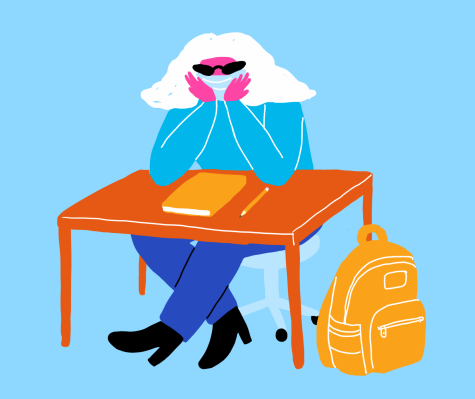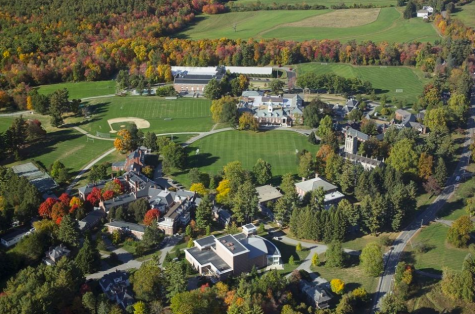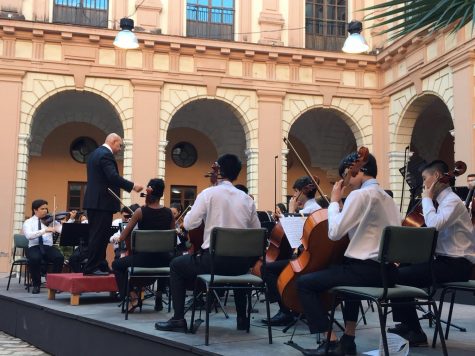Counseling office doubles down on wellness

Peer counselors undergo training in the new Wellness Center as apart of their early return to campus.
This year

Peer counselors undergo training in the new Wellness
Center as apart of their early return to campus.
, the Counseling team plans to roll out a number of changes to the school’s Wellness system, including reformatting the Lower School co-curricular program, expanding the role of peer counselors, and the founding of an Active Minds chapter on campus. Additionally, the second floor of Hundred House has been converted into a new Wellness Center, which now serves as a base of operation for Wellness. Dr. Sheilaann Fritz-Ellis is entering her second year as the Director of Counseling, and designed many of these modifications. “The mission of the counseling program,” she said, “is to create a system that promotes student wellbeing on both the proactive and reactive level.” She went on to emphasize that this means providing both preventative measures to create a positive campus spirit and individual assistance to those who are dealing with social or psychological issues. Groton’s co-curricular pro- gram, now called the wellness porgram, will receive a complete overhaul this year. The program was first designed both to ease Lower School students’ transition to boarding school life and to discuss with them realities of the teenage years, including topics such as drug usage and mental health. While the subject matter was relevant, co-curricular last year was often maligned or ridiculed by students as ineffective. Peer Counselor Michael Senko ’18 called the program “unwelcoming and ultimately unhelpful” to those for whom the program is in- tended. The most significant change is that peer counselors will take on a greater role in the sessions, which include a large group teaching portion led by Director of Wellness Barbara Cheeks and subsequent discussion groups of nine students run by two peer counselors. The time of meeting for co-curricular will move from Wednesday mornings—one of the least pleasant time blocks for a Groton student to meet— to a more agreeable Tuesday evening time slot, with second and third formers alternating weeks. Michael expressed hope that the new student-led groups will better connect with the Lower Schoolers. Peer counselors’ roles have traditionally not gone beyond providing help to students who sought it. Dr. Fritz-Ellis hopes this year to improve their presence on campus. Peer counselors will now hold office hours in the new Wellness Center one night each week in hopes of making it easier for students who need help to obtain it. Peer Counselor Matthew Higgins-Iati ‘17 was enthusiastic about this change, praising it as an “effective mechanism” for student mental wellness. As mentioned before, peer counselors will now help run co-curricular and have increased responsibility for working together with their dorms to ensure positive dorm environments. This year also marks the first in which the school will have an Active Minds chapter. Active Minds is a program which aims to increase mental health awareness on college and high school campuses by fostering discussion on the topic. Peer counselors will help to organize program meetings. The Counseling team hopes that the program will educate students on mental health issues and reduce any surrounding stigma. Peer counselors, therapists, and distressed students will have a new home this year in the Wellness Center. Constructed during the spring and summer on the second floor of Hundred House, the new facility will be the base for all “pro- active” Wellness programs (therapy sessions and the like will remain in the bottom floor of the Schoolhouse.) Addition- ally, many voluntary activities such as yoga, meditation, and group study sessions will take place here, giving a central lo- cation to a wide-reaching program. The new center features a warmly lit sitting area with coloring books and smaller offices for Wellness staff and peer counselors to use in meeting with students. Despite these improvements, Dr. Fritz-Ellis realizes that there may be issues that present themselves as the year proceeds: “As with all new changes, there will be bumps, and human nature leads us to focus on the bumps rather than the positives. I’m hoping faculty and students alike can be patient this first year as we work to make the program more effective and student-centered.”





